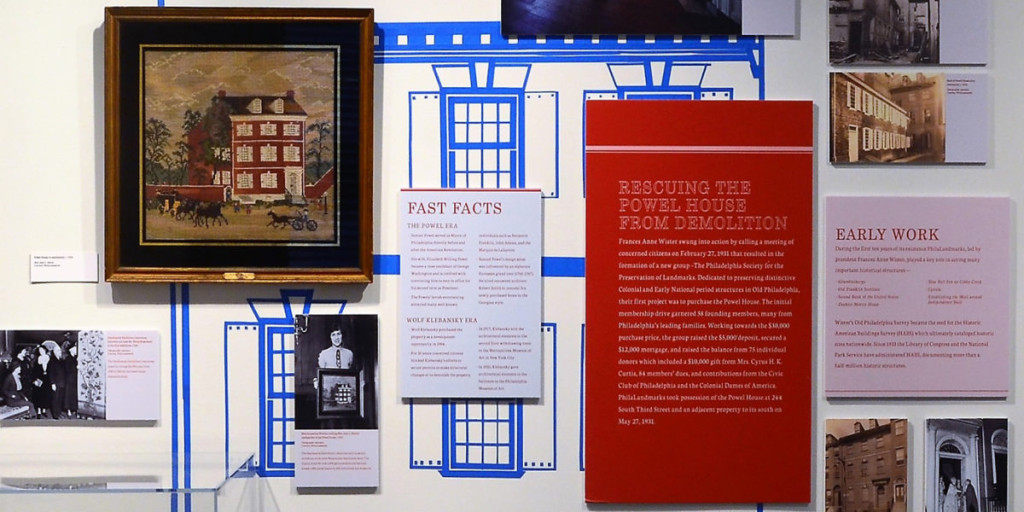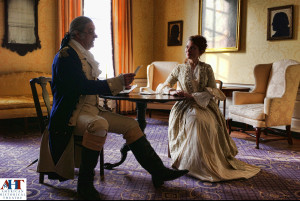
Though thoroughly a part of the 18th-century architecture of Society Hill, the Powel House is more than just a historic artifact. Yes, its lavish colonial architecture catches the modern eye, and yes Samuel Powel, “the most Patriotic Mayor” lived there, but the house itself tells a story of preservation and historical presentation.
The building has had two rooms transplanted to museums—the rear parlor on the second floor went to the American Wing of the Metropolitan Museum of Art. Interestingly, these rooms were first exhibited to immigrants to demonstrate American culture. What better way to represent America than the colonial origins? For this reason, the Powel House’s approach to public history may be particularly difficult to rewrite without offsetting the narrative.
As Jonathan Burton (the executive director of Philadelphia Society for the Preservation of Landmarks) led a house tour, he expressed concern around how much attention Samuel Powel received in comparison to his wife Elizabeth. The formation of alternative narratives to the singular narrative of Samuel has become far reaching, as their current exhibit Saved!Preserving Old City: 85 Years of The Philadelphia Society for the Preservation of Landmarks, focuses on Frances Anne Wister, the founder of PhilaLandmarks.

Housed in the Community Gallery of the Philadelphia History Museum at the Atwater Kent, the exhibit explores how PhilaLandmarks was able to purchase and renovate the Powel House during the height of the Depression, and the impact of this early work on future urban renewal projects. It also addresses the work of modern day preservationists and current issues in preservation.
These alternative narratives of historic preservation are not only an attempt to highlight women such as Elizabeth Powel and Frances Wister, but a tool to explore different approaches to audience engagement. It becomes a daunting task when you approach the idea of how to bring children into a Colonial-Gregorian house without using the same famous-male iconography they often receive in elementary education.
One solution the Powel House has found is to provide a summer camp with events like “Hikes into History” and “Art of the 18th and 19th Centuries”. Engagement is a large part of maintaining the attention of children.
The PhilaLandmarks staff seems to be connecting both the historical and memorialized aspects of public history and showing that “here” as an important place, for not just one singular reason but many different reasons that affirms a new dialogue of the shared past.
Saved! runs through June 30, 2017, at the Philadelphia History Museum at the Atwater Kent [15 S. Seventh Street] philadelphiahistory.org.
The Powel House [244 S. Third Street] is open for tours Thursday through Sunday, see philalandmarks.org/powel-house for current hours.
